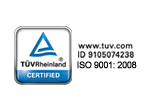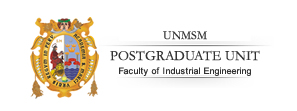
MASTER'S DEGREE IN TEXTILE MANAGEMENT AND TECHNOLOGY Y LOGISTICATaking care of the international market in a competitive form The exporting textiles and cloting sector displays a progressive and promising growth under the Free Trade Agreement, that will hit significantly the economic growth of our country. Likewise, this activity generates employment directly and indirectly while involving different branches, such as agriculture, cattle, chemical and services industries. For this reason, the graduate from the Master's Degree in Textile Management and Technology will have knowledge of Management in the Exporting Textile Industry working On Orders and will be able to plan and coordinate the resources at his/her disposal (facilities, machinery, input, workers, knowledge and capital), in order to provide the manufacture service (flexibility and rapidity) to fulfil quality standards. First Semester
Second Semester
Third Semester
Fourth Semester
E: Course of the specialty I: Subject of thesis research and development
REQUIRED COURSES MANAGEMENT PRINCIPLES IN THE INDUSTRY TO ORDER DESIGN AND DEVELOPMENT OF TEXTILES OPERATIONS MANAGEMENT RESEARCH PLANNING GLOBAL LOGISTICS MANAGEMENT PROCESS CONTROL AND QUALITY TEXTILE TEXTILE COSTS THESIS WORKSHOP I PERSONNEL MANAGEMENT INTEGRATED MANAGEMENT SYSTEMS THESIS WORKSHOP II INFORMATION SYSTEMS IN TEXTILES AND CLOTHING BUSINESS MANAGEMENT THESIS WORKSHOP III ELECTIVES TRENDS IN TEXTILE DESIGN MANAGEMENT OF FASHION ADVANCED TEXTILE MARKETING TEXTILE TECHNOLOGICAL INNOVATION THEORY OF DYEING SIX SIGMA FLEXIBLE MANUFACTURING SYSTEMS Selected Topics
Applicants have to submit the following documents to apply for the Masters in question
Payments are made in the Office of Economics at the School of Industrial Engineering, or placing deposits UNMSM Dollars in Savings Account No. 000270016684 Financial Bank on behalf of the Faculty of Industrial Engineering UNMSM. Saturday 3:00 pm to 9:00 pm and Sunday from 8:00 a.m. to 2:00 pm (subject to change) Industrial Engineering Faculty - Campus UNMSM
|
||||||||||||||||||||||||||||||||||||||||||||||||||||||||||||||||||||||||||||||||||||||||||||||||||||||||||||||||||||||||||||||||||||||||||||||||||||||||||||||||||||||||||||||||||||||||||||||||||||||||||||||||||
| © 2011 - All rights reserved |
|

